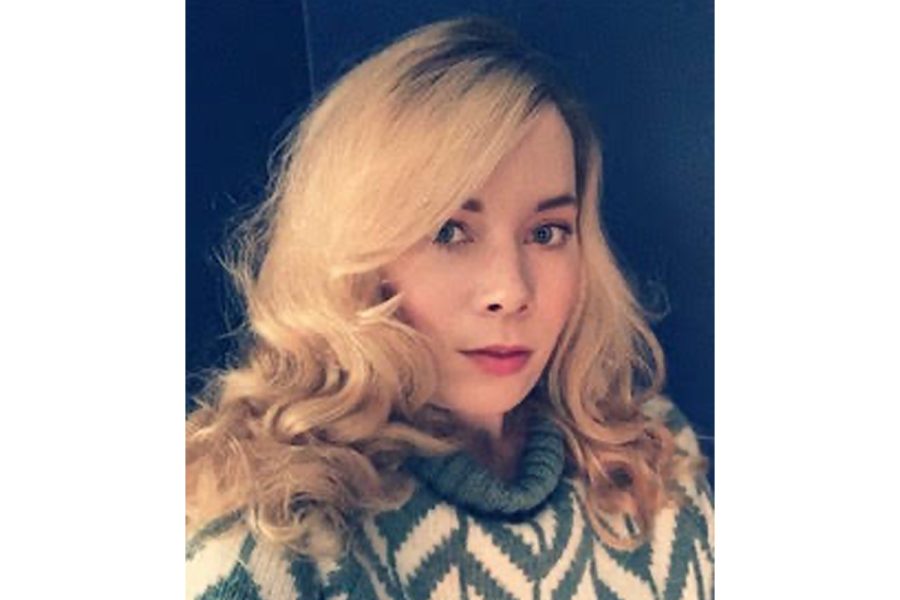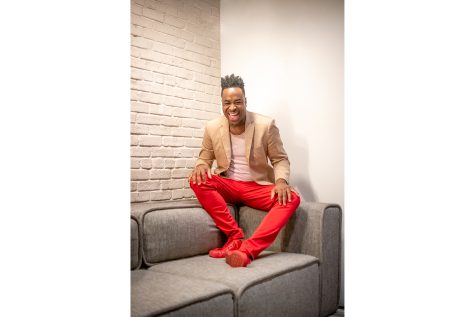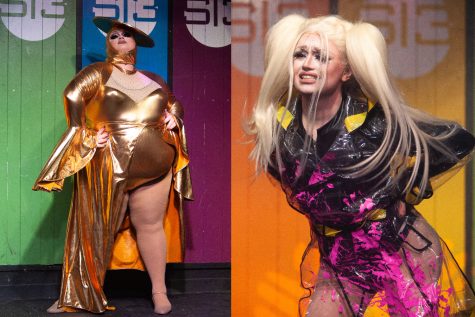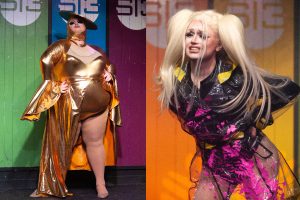Ask the Author: Candice Wuehle
Iowa City-born author and poet Candice Wuehle grew up surrounded by literature. With three degrees in writing, Wuehle recently released her first novel, “Monarch,” which she will discuss at Prairie Lights on March 28.
March 8, 2022
Candice Wuehle is a poet and author who grew up in Iowa City. She received an MA in literature from the University of Minnesota, an MFA in poetry from the Iowa Writers’ Workshop, and a doctorate in creative writing at The University of Kansas, where she was the recipient of a Chancellor’s Fellowship. Wuehle is the author of many chapbooks and poetry collections, one of which being Death Industrial Complex, which was selected as a finalist for The Believer Magazine Book Award in 2020. Her work can also be found in several reviews and magazines across the United States. Most recently, Wuehle published her first novel, Monarch. On March 28, there will be a reading and conversation with Wuehle on Monarch at Prairie Lights to celebrate its release.
(This interview has been edited for length and clarity.)
DI: In your novel, Monarch, what inspired you to combine these deep and dark plotlines with the life of a former beauty queen — which might be seen as more glamorous?
Wuehle: I was listening to a true-crime podcast, and they were covering the murder of JonBenét Ramsey, and just sort of as an aside, one of the hosts of the podcast mentioned that they’d come across this theory that posited that JonBenét Ramsey’s mother, Patsy, was an agent in a deep state program called — I think they said this in the podcast called Project Monarch, but maybe I just looked it up on my own and found this “Project Monarch” theory. So anyway, the theory is that Patsy Ramsey was triggered and that she murdered her own daughter who was also in training to become a monarch agent. So of course, that is far-fetched and unbelievable, but I thought that it was really fascinating, and it went well with these ideas that I was already having for a novel in the back of my mind that was about how culture in the 90s socially conditions women to remove them from their own personalities or desires, and the metaphor sort of fell into that slot that I’d heard about.
DI: What about Monarch are you most proud of?
Wuehle: I think that I am most proud that I was able to incorporate some of the research that I did during my doctorate at the University of Kansas, specifically the research that I was doing on memory and trauma studies. There’s a plotline through Monarch where the mother of the main character runs this sort of cryotherapy Tupperware party ring where women sleep in these Tupperware containers at night that are also cryotherapy chambers in order to freeze the aging process. And that idea came to me from this Disney special that I remember seeing when I was a kid that no one else remembers. But I thought that that plotline was really similar to what I was learning about trauma structures and how the brain works, to process traumatic memories and the sense of sort of being frozen in a moment of trauma. So, you know, I got my Ph.D. as a creative writer, but I also did all this theoretical research, so I think I’d say that I’m really proud that I was able to bring some of those ideas into Monarch in a way that I think is a little more accessible, perhaps, than a literary theory.
Related: Lan Samantha Chang: an author and woman for change
DI: How does all your expertise and experience in writing poetry reflect in your novel-style writing?
Wuehle: When I started Monarch and I sat down to write it, I thought I was gonna be writing a prose poem. The beginning of Monarch starts with a short passage that is from a different narrator than the rest of the book and that was part of the prose poem that I was writing. There were just some little moments in that passage that felt more like they had a story behind them, and a plot, and where a voice sort of started to come out in a character. I realized that the story that wanted to be told had elements that were really different from poetry, in terms of characterization. Monarch has a real kind of spy-thriller plot that probably could not be conveyed through poetry, that at the same time, I think retains a lot of what I did as a poet in terms of imagery, and including extended metaphor throughout the book, but especially just in terms of bringing together ideas.
DI: What have you found beneficial or interesting about having three different degrees in writing from three different schools?
Wuehle: I have sought a lot of expertise in some areas and a little bit in others. At the University of Minnesota when I started graduate school, I thought that I was going to go into 18th-century literature, specifically British women’s literature, and I wanted to write about gothic novels, so I think you can kind of see in Monarch how there’s some Gothic architecture and an approach to family structures that you might find in Gothic British novels. I have lots of knowledge from different areas, like British literature, trauma theory, memory studies theory, and that all kind of strains or provides a lens through which I looked at a lot of pop culture things, you know? Monarch is filled with stuff like magazines and music and trends from the 90s, so I think having all of those degrees allows me, potentially, to think about everyday stuff in a really different way, or to find what’s interesting about things that potentially don’t seem that interesting.
DI: What did you learn from the Iowa Writers’ Workshop that you have most carried into your career today?
Wuehle: I think I learned at the workshop how to live the daily life of a writer, so I think I learned a lot about just setting aside the time to write and privileging that time and prioritizing it. And I got to see lots of other people doing that and see how much discipline that took, but also passion. I would say that the biggest thing that I learned through example at the workshop was to write about what you’re obsessed with and to not worry too much about what you think you’re supposed to be writing about or what you think people want to read about. But rather to just go towards your own obsession, and the thing that you can think about every single day in detail for years.
DI: Do you think growing up in Iowa City, being a UNESCO City of Literature, impacted you in a way that led you to this career path?
Wuehle: Yeah, definitely. It was actually really weird for me when I left Iowa City for the first time after graduating from the university to go live in a town where you tell someone that you want to be a writer, and that’s not just totally normal to them. What I’m saying is I grew up seeing, you know, renowned writers in a grocery store. Mary Szybist, a wonderful poet who won the National Book Award in [2013], was my high school English teacher and my mentor. And I think if she hadn’t pulled me aside one day and told me that I was a good writer, and that I should think about going to college, I don’t know that I would have, honestly. So yeah, growing up in Iowa City made the idea of being a writer feel as normal as doing anything else to me, and made it seem very possible because I saw other people doing it, and it repeatedly inspired me and was obviously just such a benefit to sort of live and breathe literature at Prairie lights or at university events, or just through a happenstance conversation with someone else who’s really into writing, which is most of the town.




















